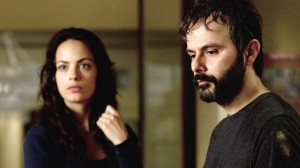film review: the past
Relationship dramas of a true, candid quality are a rarity in this age of conventional narratives and ‘happy’, Hollywood-style resolutions. It comes as no surprise then, that this latest film from Iranian director Asghar Farhadi, of the highly acclaimed A Separation (2011), is one made well outside of these often tiresome parameters.
Set in France, The Past follows the tense reconciliation of the headstrong Marie (Berenice Bejo) and Ahmad (Ali Mosaffa) after a four-year separation. Ahmad, a reserved man, has been living back in Iran. Initially it appears he has become completely estranged from his family of three children, but it soon becomes clear these kids are from Marie’s previous and current relationships. We also realise Ahmad has returned to France to finally sign the divorce papers. During his time visiting his ex-wife Marie, who is becoming increasingly stressed, he learns she is living with her new partner: the brooding Samir (Tahar Rahim), and his mischievous young son Fouad (Elyes Aguis).
To make matters more complicated, Marie’s teen daughter Lucie (Pauline Burlet), is extremely unhappy about her mother’s impending marriage. Adding to the mix are the dark circumstances that surround the hospitalisation of Samir’s wife, who has been in a coma for eight months. Farhadi has crafted one very complex family drama.
The Past inevitably deals with the profound effect our histories have on the present. It raises the question: are we better off not knowing certain details in order to move on with our lives? Farhadi moves full steam ahead in revealing every painful detail to create an emotional climax. Such precision and realism makes for powerful viewing.
As a female protagonist, it is interesting to see Marie simultaneously in a position of power, and of vulnerability and struggle. Despite living apart for four years, it’s clear Marie still has a hold on Ahmad, and although she doesn’t seem to be in a happy relationship with Samir, she still clings to the hope that they will soon marry.
I found the performances to be consistently strong from all characters: Berenice Bejo does a fantastic job as the matriarch of the household. I also found the younger characters Fouad, Lea (Jeanne Jestin) and the troubled Lucie to be utterly natural as children living in the midst of a household in crisis. They are certainly a breath of fresh air in what can at times be a heavy film.
However, I felt that the awkward dynamic between the three adults (Marie, Samir and Ahmad) could have been explored more extensively. I also didn’t think that Marie and Ahmad’s past should simply be left shrouded in mystery – their bitterness towards one another isn’t ever elaborated upon, which is slightly confusing. In addition, I felt that Farhadi’s exploration of mental illness was perhaps a bit superficial (this is not to say it is done without care or sensitivity).
Despite these few faults, The Past is a film of impressionable quality that never strays from its path. It once again confirms that humans make mistakes, and don’t always learn from them – there are consequences to the choices that we make, and the solution isn’t always desirable. This is a film not to be missed by fans of Farhadi’s work.


